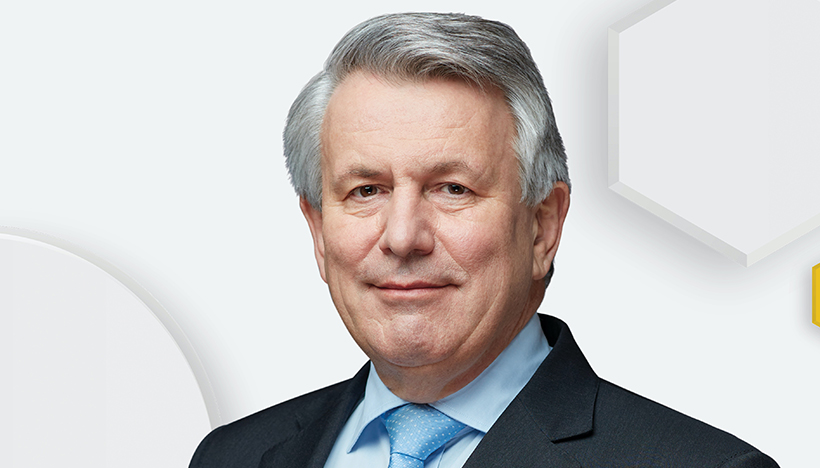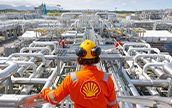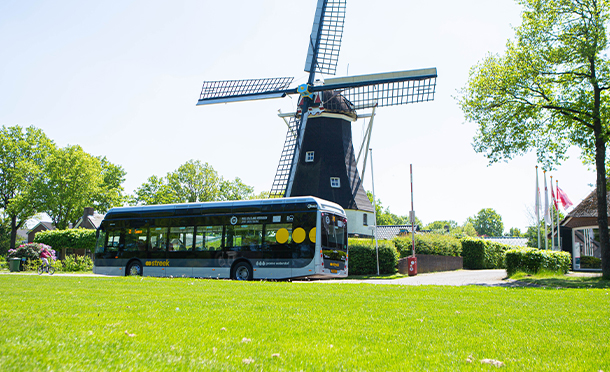Chief Executive Officer’s introduction

In a time of great uncertainty, it is vital that our long-term energy transition strategy remains on track. This report shows the strong progress we have made towards our target to become a net-zero emissions energy business by 2050.
It will take bold moves for Shell to achieve net zero. In 2021, we took some significant steps. We completed one of the biggest restructurings in our history, making us a more agile company. We decided to simplify our share structure, and moved Shell’s headquarters from the Netherlands to the UK.
Targets
In this Energy Transition Progress Report, we show our progress against our climate targets in the year since our shareholders overwhelmingly supported our energy transition strategy.
We are making significant progress in a long-term plan. Crucially, we set a new target to reduce absolute emissions from our operations by 50% by 2030, compared with 2016 on a net basis. By the end of 2021, we had achieved a reduction of 18%. We achieved our short-term target to reduce the net carbon intensity of the energy products we sell by 2-3% by the end of 2021, also compared with 2016.
Now our targets start to get more ambitious. We are working towards a 9-12% reduction in net carbon intensity by 2024, and a 20% reduction by 2030. To put our targets into context, the International Energy Agency Net Zero by 2050 scenario suggests that the transport sector, which accounts for most of Shell's emissions, needs to see a reduction in net carbon intensity of 18% by 2030.
From today, our target to achieve net-zero emissions by 2050 is no longer conditional on society’s progress, marking a further step forwards. This reflects the leading role we will play in the energy transition. We must find ways to be ahead of society where we can, while remaining a successful and profitable company.
As we have seen from the recent report by the Intergovernmental Panel on Climate Change, the world needs to take urgent action to meet its climate goals. While countries, companies and individuals are making significant changes, there is still a risk that the world will not achieve net-zero emissions by the middle of the century. This could mean that Shell would find it hard to meet its 2050 target as well. We are rising to that challenge and will demonstrate over time how we will reach our goal.
Working sector by sector
We are investing in low- and zero-carbon products such as renewable electricity, hydrogen, biofuels and chemicals. We are building a leading hydrogen business, and now operate 10% of total electrolyser capacity in the world. We are already one of the world’s largest producers of biofuels through our joint venture in Brazil. And last year we started building one of Europe’s biggest biofuels facilities.
Crucially, we are working sector by sector to identify the low- and zero-carbon products and services that our customers need. And we are laying the foundations for future expansion by building capacity and expertise. At the beginning of 2022, for example, with our joint-venture partners, we won bids to develop 5 gigawatts of floating wind power in the UK, enough to power 6 million homes. That is more than double the number of homes in Scotland.
Investing in net zero
Our Upstream business continues to provide the oil and gas the world needs today, and generates the returns to fund distributions to shareholders and our investments in the energy transition. Our production and sales of oil and gas will decrease in the coming years as we transform our business.
At the same time, our investments in the energy system of the future will increase significantly. By 2025, we expect around half of our total expenditure (cash capital expenditure and operating expenses) to be on low- and zero-carbon products and services including biofuels, hydrogen, power, charging for electric vehicles, carbon capture and storage, nature-based solutions, chemicals and lubricants. In 2022, we expect that around one third of our total expenditure will be on these low- and zero-carbon products and services.
Our planned investments in countries such as Germany, the Netherlands and the UK put us among the leading investors in the energy transition there. In the UK, for example, we plan to invest £20-25 billion ($26-33 billion) over the next ten years, mostly in low- and zero-carbon projects including offshore wind, hydrogen and charging for electric vehicles, subject to Board approval.
Shareholder engagement
A central part of our Powering Progress strategy is delivering value for our shareholders. We have made good progress here too. In 2021, we produced a strong financial performance and announced an $8.5 billion share buyback programme in the first half of 2022.
We will continue our dialogue with shareholders as Shell transforms and evolves. It is important that we are transparent about our progress in the energy transition. From the first quarter of 2022, we intend to publish more information about the profitability of our Renewables and Energy Solutions business, something that investors have asked for.
We believe that our strategy delivers secure and reliable energy that will accelerate the energy transition and deliver strong profits and returns to shareholders. I ask our shareholders to vote for Resolution 20 in support of our progress towards our targets and milestones as we accelerate towards net zero.









